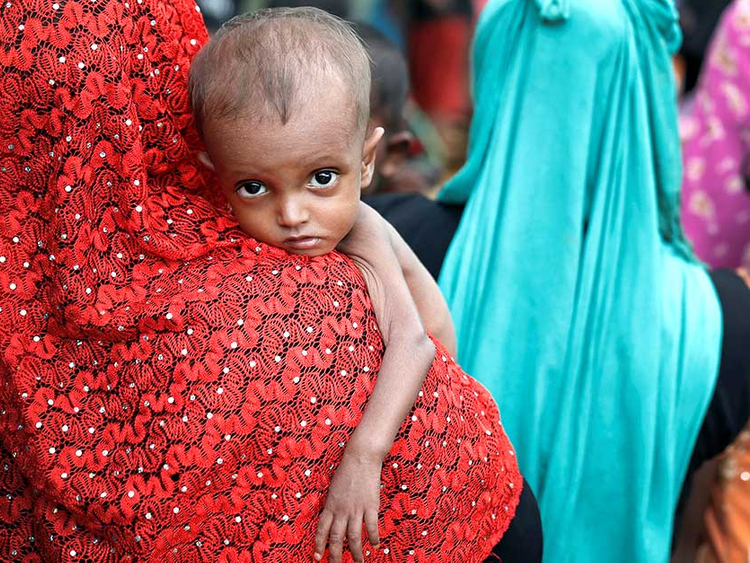United Nations: A surge in births among Rohingya refugee women in Bangladesh is imminent and the fact that possibly thousands of the pregnancies resulted from rape makes the provision of proper medical care in the camps more difficult, according to a UN News portal report.
With the monsoon season fast approaching in Bangladesh, UN agencies and their partners are struggling to protect nearly 700,000 Rohingya refugees from disaster and disease, Xinhua news agency reported citing the portal report released on Friday.
While the imminent new births are already a great challenge to the world body, the wrenching legacy of sexual violence makes the job even harder.
The displaced population includes an estimated 40,000 pregnant women, UN officials estimate, many of whom are expected to give birth in coming weeks.
An unknown but significant share of these pregnancies, aid officials believe, resulted from rapes committed by members of the Myanmar army and allied militants.
Pregnancies resulting from “what we believe could have been a frenzy of sexual violence in August and September 2017 could come to term very soon”, Andrew Gilmour, UN Assistant Secretary-General for Human Rights, told UN News. “So, we are expecting a surge of births.”
In March, Gilmour travelled to Bangladesh’s Cox’s Bazar, where the refugees have settled in camps and make-shift clearings after escaping violence in Myanmar’s Rakhine.
Fearing stigma, sometimes feeling depressed or ashamed, pregnant refugee women are often reluctant to admit that they were raped, according to medical and aid workers.
Attacks by Rohingya activists on Myanmar security posts in Rakhine on August 25, 2017, prompted alleged massive retribution by Myanmar security forces and vigilante groups, forcing the mostly Muslim Rohingyas to flee to Bangladesh.
Sexual violence, as well as killings and the burning of villages, were reported.













